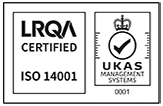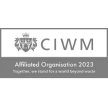
With a vaccination programme well underway, the end of the coronavirus pandemic is in sight. But the consequences of this deadly disease have extended further than health – among other unwanted side effects, the pandemic appeared to set recycling and circular economy targets back. In November, we discussed the impact the pandemic had on global plastic consumption. Now, a few months on, has anything changed?
An increase in plastic waste
Demand for face visors, Perspex screens and disposable PPE all increased last year. What’s more, single-use packaging consumption increased because of quarantine-related home deliveries and fears associated with reused materials. Sights of disposable masks strewn on roads and beaches stirred frustration in those doing their best to protect the world by being mindful about their waste. It’s a picture that appears to set back leaps in recycling efforts.
Recycled vs new plastic
In a sobering report, ‘Covid-19 trashed the recycling dream’, Reuters reported that the pandemic intensified a price war between recycled and virgin plastic. Nearly all plastic begins life as a fossil fuel, and as the economic slowdown decreased oil demand, it also cut the price of new plastic. New plastic can be half the price of the most common recycled plastic. In a world where reusing as much plastic as possible is vital for protecting the environment and oceans, this is an unquestionable blow. In their report, Reuters also found that although most companies state concern about plastic waste, in reality, their investments into waste reduction efforts are a fraction of the investments made into making new plastic.
Is it all bad news?
In the peak of the crisis, governments, health providers, and commercial businesses innovated at speeds never demanded before. As such, breakthroughs were made in the circular economy. Shortages in manufacturing and supply chains drove a circular revolution, such as sterilising previously disposable N95 masks to make them reusable. But the question stands: will it be enough? The Circularity Gap Report stated that today, the global economy is only 8.6% circular. That’s troublingly down from two years ago when it was 9.1%.
Post-pandemic goals
As the world re-aligns after the shockwaves of Covid, environmentalists, politicians and industry leaders call for more to be done. The UK Environmental Audit Committee promises they’re ‘planning a green and climate-friendly global response to the crisis caused by the pandemic’. And the UN Environment Programme has put a green revolution simply – failure is not an option. They’re advocating for stimulus funds to invest in a green transition to tackle the crisis with renewed multilateralism.
In the meantime, back in West Sussex, here at Rabbit, we will continue to do our bit – recycling everything possible from the skips we process and generating green energy with unrecyclable waste.
To find out more about skip hire in West Sussex and our Energy from Waste facility, contact Rabbit. Reach us on 01903 762020 or email info@rabbitgroup.co.uk.




